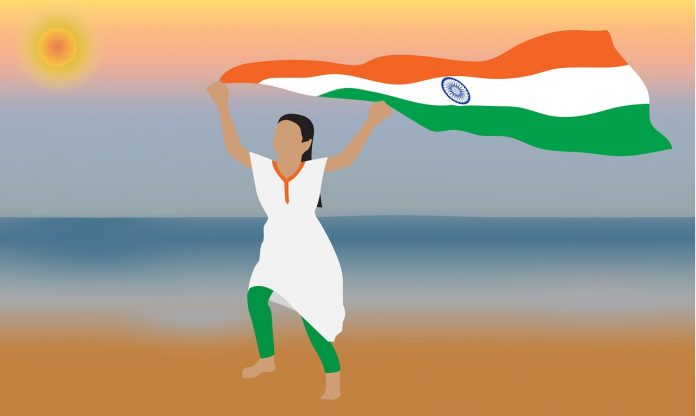This article is written by Beejal Ahuja from the New Law College, Bharati Vidyapeeth University, Pune. This article aims to analyse the National Honour Act, 1971 and its various judicial pronouncements.
Table of Contents
Introduction
“Every citizen of India must remember that he is an Indian and has every right in this country but with certain duties.”
These are the words of a great politician, Sardar Vallabhbhai Patel. Showing respect to National Anthem by standing, to National Emblem, etc. are the duties of a citizen of India. When one says we are of this nation then it becomes important to respect nationhood. A bunch of people were criticized in Bengaluru for not standing up when the National Anthem was played in the theatre, and we come across many such incidents where people even assault those who don’t stand up while the National Anthem is being played.
To instil a sense of commitment towards patriotism and nationalism among citizens, the Hon’ble Supreme Court made it mandatory for the cinema halls to play National Anthem before every movie and screening and for the citizens present in the cinema hall to stand. But in 2018, the Hon’ble Supreme Court withdrew its decision and made it optional for the cinema halls to play the National Anthem, but if it is played, then everyone present in the theatre is required to stand up except the ones with a disability or suffering from Parkinson’s disease, autism, cerebral palsy, sclerosis, leprosy, muscular dystrophy or hearing and visual disability.
This article is going to analyse the Act passed to maintain nationalism and promote respect for national symbols or anthem, i.e. Prevention of Insults to National Honour Act.
Prevention of Insults to National Honour Act
This Act was enacted by the Parliament of India on 23rd December 1971, with an intent to prevent the country’s national symbols, National Flag, the Constitution, the National Anthem, the map of India and Indian Constitution from being insulted or disrespected. And it also tends to penalise the person who insults, dishonours or disrespects the nation.
Scope
This Act applies to the whole of India (including Jammu & Kashmir) and it restricts or prohibits the acts of insult to the national symbols, the National Flag, Constitution, National Anthem, India’s Map, etc. either by burning, trampling or mutilating in public, whether intentionally or not. It does not intend to prohibit the honest or bonafide criticism of the above mentioned and an express provision to give effect to this has been mentioned in the Act.
Important provisions
Section 2- Insults to Indian National Flag and Constitution
This Section states that, if any person burns, mutilates, defaces, defiles, disfigures, destroys, tramples upon or through any other ways disrespects or brings into contempt, by words, either spoken or written, or by acts, the Indian National Flag or the Constitution of India or any other part of it, publicly, then that person will be punished with imprisonment of up to three years, or with fine, or with both.
There are few explanations about the meaning of certain terms and what will not be considered an offence under this Section.
Explanation 1
This states or explains that if any comments intend to criticise the Constitution or the Indian National Flag or any measures of the Government to obtain or get an amendment done in the Constitution of India, or an alteration in the Indian National Flag, lawfully, then it does not constitute as an offence under this Section.
Explanation 2
The term “Indian National Flag”, in this Section, includes all the visible representations of it, whether in form of any picture, painting, drawing or photograph or any other means or any parts thereof, made of any substance or represented on any substance.
Explanation 3
The term or expression “public place”, in this Section, means any place which is easily accessible to the public for use and includes any public conveyance.
Explanation 4
The term or expression “disrespect” to the Indian National Flag means and includes-
- any sort of gross affront or indignity showed towards or offered to the Indian National Flag; or
- dropping or dipping the Indian National Flag in salute to any person or thing; or
- flying the Indian National Flag at half-mast except on the occasions where it is mandatory to fly the Indian National Flag half-mast on buildings but following the instructions issued by the Government; or
- draping the Indian National Flag in any form whatsoever, except in State funerals or armed forces or other paramilitary forces funerals; or
- using the Indian National Flag-
- as a portion of the costume, uniform or accessory of any description which is worn below the waist of any person; or
- by embroidering, stitching, or printing it on the things like cushions, handkerchiefs, napkins, undergarments, or any dress material; or
6. altering the Indian National Flag by putting any kind of inscription on it; or
7. using the Indian National Flag as a covering or a wrapper for receiving, delivering or carrying anything except flower petals when the Indian National Flag is unfurled on special occasions while celebrating events including the Republic Day or the Independence Day; or
8. using the Indian National Flag to cover a statue, or a monument or a speaker’s desk or a speaker’s platform; or
9. intentionally allowing the Indian National Flag to touch the ground or the floor or trail in water intentionally; or
10. using the Indian National Flag as a drape over the hood, top and sides or back or on a vehicle, train, boat or an aircraft or any other similar object; or
11. using the Indian National Flag to cover a building; or
12. intentionally displaying Indian National Flag with the top colour i.e. “saffron” down.
Section 3- Prevention of singing of National Anthem
This Section states that, if anyone prevents the singing of the Indian National Anthem or causes any sort of disturbance to any assembly engaged in such singing and paying respect to the Indian National Anthem, intentionally, will be punished with imprisonment of up to three years, or with fine, or with both.
Section 3A- Enhanced penalty on second and subsequent convictions
If a person has already been convicted of an offence under Section 2 or Section 3 and is again held convicted of any such offence, shall be punished for the second and every subsequent offence, with imprisonment which may extend up to 1 year.
Judgments
Through various cases and judgments on respect of National Anthem, National Flag and Constitution, the following points have been put forward-
Right of Silence at the time of the singing of National Anthem
-
Bijoe Emmanuel v. State of Kerala
Bijoe Emmanuel v. State of Kerala is a very popular case which is also known as the National Anthem Case. The education department of the State of Kerala issued an order that the Indian National Anthem will be played before the starting of the classes every day and every person present should pay respect to the Anthem. But there were three children namely, Bijoe, Binu Mol, and Bindu Emmanuel, who were the Jehovah’s Witnesses or followers of Jehovah religion where they were not allowed to sing the National Anthem. So, they used to stand respectfully when the National Anthem was being played but they didn’t sing it, as it went against their religious faith. Hence, they were expelled from the school because for not singing the National Anthem.
Then, a writ petition was filed by the children against the school for their expulsion. But their petition was rejected by a learned Judge and then by a Division Bench. After this, they approached the Hon’ble Supreme Court of India through filing a Special Leave Petition under Article 136 of the Constitution of India.
The Hon’ble Supreme Court said that there is no such provision of law which makes it mandatory to sing the National Anthem, the only thing mandatory is that every person should stand while it is being played. It also stated that Article 51A of the Constitution of India says that every Indian citizen must abide by the constitution and respect its ideals and institutions, the National Flag and the National Anthem and the proper way to pay respect to the National Anthem is to stand up whenever it is being sung. It is, therefore, not correct to say that it is disrespectful if you do not sing the National Anthem.
The Apex court, while invalidating the expulsion order of the school, said that this order has violated the fundamental rights of the students under Article 19(1)(a) and Article 25(1). The court said that the Parliament was not mindful of National Honour and also discussed the applicability of Section 3 of the National Honour Act which says that if anyone prevents the singing of the Indian National Anthem or causes any sort of disturbance to any assembly engaged in such singing and paying respect to the Indian National Anthem, intentionally, will be punished with imprisonment of up to three years, or with fine, or with both. And the court also held that standing silent while the National Anthem is being played neither restricts any other person from singing nor causes disturbance to any assembly engaged in such singing.
Duty-bound to show respect
-
Shyam Narayan Chouksey v. Union of India
In the Shyam Narayan Chouksey v. Union of India, the petitioner asked the court to specify as to what really constitutes disrespect and abuse of National Anthem and also made a reference to the Prevention of Insults to National Honour Act, 1971. The 2 judge bench of the Hon’ble Supreme Court issued some directions as an interim measure to stop the commercial exploitation and dramatized display of the National Anthem. The directions to be followed carefully were-
- No one should exploit the National Anthem to gain any financial advantage and commercial benefit.
- The National Anthem should not be a part of any drama or show because it is imperative to show respect when it is sung or played.
- Neither National Anthem nor any part of it should be displayed on objects or places that have a disgraceful status. It is because the National Anthem is a symbol of national identity, integrity and constitutional patriotism.
- All the theatres and cinema halls in India have to play the National Anthem before the screening of the movie and everyone present in that hall has to stand and mandatorily pay respect to the National Anthem.
- Before playing the National Anthem, the entry and exit gates of the cinema hall should be closed so that no one can disturb it when it is being played as it will amount to disrespect of the National Anthem if done otherwise.
- When the National Anthem is being played in the Cinema Halls, the screen should show the picture of the National Flag.
- Any other abridged version of National Anthem made by anyone should not be played or displayed at the movie theatre.
Sedition against Government
-
Sanskar Marathe v. State of Maharashtra & Anr.
This case is about the arrest of a cartoonist, Aseem Trivedi, by the Mumbai Police for posting cartoons on his Facebook page and other websites depicting mockery of Parliament and corruption at revered positions. He was charged with sedition because, in one of the cartoons, the Parliament was displayed as a giant commode and showed the National Emblem with wolves instead of lions. The charges were under Section 124A of the Indian Penal Code, the Prevention of Insults to National Honour Act, 1971 and Section 66A of the Information Technology Act, 2000.
The Bombay High Court held that the arrest of the cartoonist violated his freedom of speech and expression. The Court dropped the charges of sedition against him by stating that it was just an expression of anger and thought on the deplorable state of affairs in the country and millions of people would feel the same.
Flying of National flag on private buildings
-
Union of India v. Naveen Jindal
This is a very popular case which is also called the National Flag Case. Naveen Jindal hoisted the National Flag on his factory. Then the Commissioner of Bilaspur objected that Flag Code of India does not permit any private citizen to hoist the National Flag. Naveen filed a petition in the High Court and argued that no law could stop citizens from hoisting the National Flag. The High Court allowed the petition and said that Flag Code of India is not a statute or law, it is just a set of executive instructions issued by the Government of India and, hence, not a valid restriction on the right of freedom of speech and expression. The High Court said that only the limitations mentioned under Article 19 (2) could limit the fundamental rights of the citizens and the rules for the flying of the National Flag can be read in the Emblems and Names (Prevention of Improper Use) Act, 1950 and the Prevention of Insults to National Honour Act, 1971.
Unsatisfied by the decision of the High Court, the Union of India, filed an appeal against the order of the High Court to the Supreme Court, stating that whether the citizens be allowed to hoist the flag or not is a policy decision and the court shouldn’t intervene in this matter.
The Hon’ble Supreme Court, on 23rd January 2004, dismissed the appeal filed by the Union of India against the order of the High Court and held that flying the National Flag is every Indian citizen’s right to freedom of speech and expression, under Article 19(1)(a) of the Constitution of India. From then onwards 23rd January is marked as National Flag Day by Naveen Jindal.
Conclusion
The Prevention of Insults to National Honour Act imposes a binding duty on all the citizens of India to pay respect and avoid any sort of dishonour to the National Anthem, National Emblem, National Flag, and the Constitution Of India, as they are the symbols of the nation’s integrity and patriotism. Through various judgments and decisions of the judiciary, it is clear that the National Anthem should be paid respect by standing and singing is not mandatory, and also the National Anthem cannot be changed or re-written.
It was also held that the National Flag can be hoisted by the citizens as it is their fundamental right, though not absolute. Also, writing or drawing about a matter which the citizen feels wrong about doesn’t constitute the offence of sedition or disrespecting the government. But, the National Song hasn’t been included in the Act and should be included as disrespecting the National Son doesn’t give rise to any punishment. But there are appropriate measures taken against the person who disrespects the National Anthem, National Emblem, National Flag, and the Constitution Of India.
References
- https://shodhganga.inflibnet.ac.in/bitstream/10603/80570/8/08_chapter%204.pdf
- https://www.thehansindia.com/posts/index/Hans-Classroom/2017-01-13/Prevention-of-Insults-to-National-Honour-Act/273482
- https://blog.ipleaders.in/national-anthem-shyam-narayan-chouksey-case/
https://t.me/joinchat/J_0YrBa4IBSHdpuTfQO_sA
Follow us on Instagram and subscribe to our YouTube channel for more amazing legal content.
 Serato DJ Crack 2025Serato DJ PRO Crack
Serato DJ Crack 2025Serato DJ PRO Crack










 Allow notifications
Allow notifications


